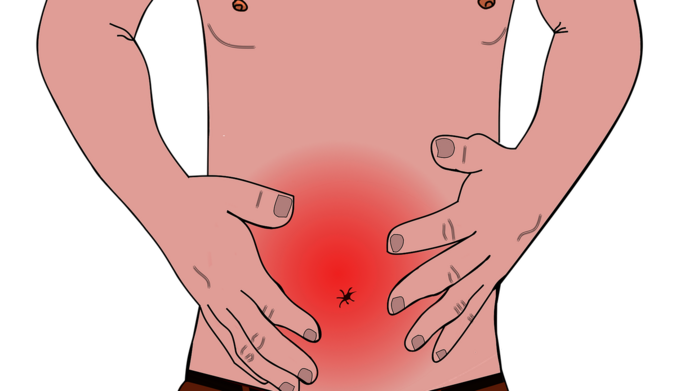Faulty maintenance endangers intestinal health

The single-layer epithelium not only forms a barrier separating us from millions of microorganisms in our intestines, but is also designed to absorb nutrients from food. To this end, the intestinal epithelium has developed a number of immunological functions, such as the production of bactericidal substances and a protective mucosa layer. It should not seem surprising that such tissue requires regular maintenance, a fact that has been well investigated. What is still largely unclear is precisely what environmental factors in our nutrition trigger stress for the intestinal epithelial cells and what mechanisms are in place to manage this stress. Timon Adolph, an early-career gastroenterologist at the University Hospital in Innsbruck, now wants to explore how food components disrupt the balance on the mucosa surface and whether this has an influence on the development or course of chronic inflammatory bowel disease such as Crohn's disease or ulcerative colitis, affecting about 50,000 people in Austria. Principal investigator Adolph collates possible triggers in a western diet like pieces in a jigsaw in order to identify the inflammatory mechanism. Initial results suggest that a high-fat diet, and in particular polyunsaturated fatty acids, can trigger an inflammatory reaction when the protective mechanisms in the gut are defective.
Waste disposal regime and oxidative protection
With support from the Austrian Science Fund FWF, Timon Adolph is investigating how the loss of two protective mechanisms observed in Crohn's disease affects intestinal health. More specifically, the physician is investigating the loss of the anti-oxidative enzyme GPX4 and the autophagy function. The Greek term autophagy translates as “self-devouring”: “While the name has a cannibalistic ring to it, autophagy is really a cell protection programme that can break down and recycle proteins, broken cell organelles and other waste,” explains Adolph. The enzyme GPX4, on the other hand, protects fatty acids in the cell walls from oxidative stress. Because GPX4 is highly conserved in evolutionary terms, Timon Adolph's team is able to use mice as model organisms. It has already been shown that Crohn's disease patients show reduced activity of the enzyme GPX4 in the inflamed intestinal epithelium. The research project will now investigate the role of autophagy as a cleaning mechanism for oxidised fatty acids. The hypothesis: the loss of autophagy triggers an alarm signal that contributes to an uncontrolled immune response in the gut.
Little protective enzyme, a great deal of PUFA
For the first series of experiments, the team bred mice which, through genetic modification, show 50 percent less activity of GPX4 in their intestinal epithelial cells, just as is observed in Crohn's disease patients. When these mice were fed a western diet containing polyunsaturated fatty acids (PUFA), the animals developed intestinal inflammation similar to Crohn's disease. The evidence for this recently published result was found in biochemical and microscopic analyses of blood and intestinal tissue. The team now hopes to identify the impact of autophagy in this inflammation model in order to better understand chronic inflammatory bowel disease and develop new therapeutic concepts.
Defective autophagy and inflammation
“The experiments on mice have provided first proof of the fact that, while not toxic per se, long-chain fatty acids in our diet can lead to intestinal disease. Now we have to clarify whether a damaged cleaning mechanism in the intestinal epithelium is involved in the inflammatory processes,” explains Adolph. The team will pursue the issue, which is a central component of the FWF-funded project, by means of cell cultures and mouse models. Initial experiments indicate that autophagy defects are significantly involved in the inflammatory reaction triggered by PUFA. Oxidative stress seems to play an important role in this process, which could be relevant regardless of the available amount of the GPX4 protective enzyme. At the University Hospital Innsbruck, Timon Adolph has also been involved in the examination of Covid-19 patients in the past weeks together with other colleagues. In some of them, the physicians were able to identify an inflammatory marker in the stool, as a recently published study shows. According to the researchers, this could be an indication that the corona virus also reproduces in the intestines of some people, which means infection via the gastrointestinal tract is conceivable.
Personal details Timon Adolph studied medicine at the Medical University of Innsbruck, acquired a PhD from the University of Cambridge in 2014 and is currently completing his clinical training as a gastroenterologist in Innsbruck. In this context, he heads a research group investigating disease mechanisms of inflammatory bowel and liver disease. His team uses cell culture and mouse models as well as human stem cell cultures to explore how food components trigger metabolic inflammation.
Publications





